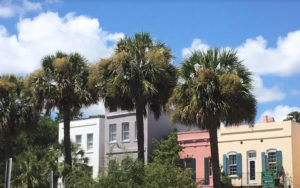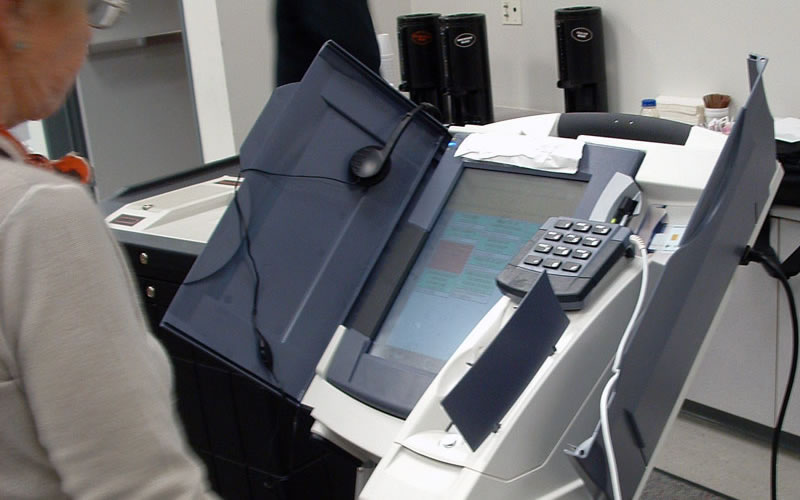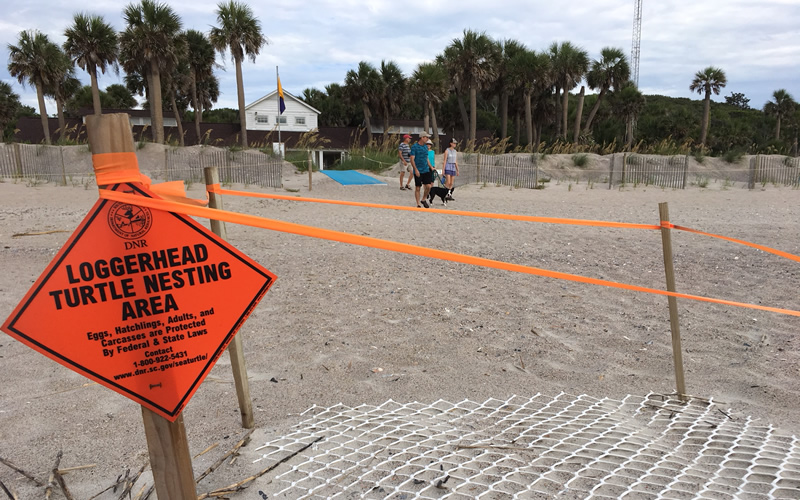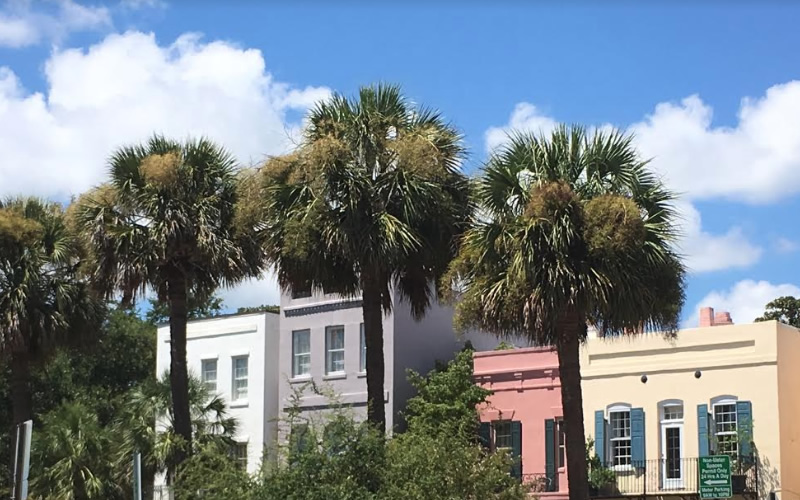FOCUS: Prints in Clay at Gaillard to celebrate spirituals, culture
COMMENTARY, Brack: S.C. should buy new voting machines now
IN THE SPOTLIGHT: Charleston International Airport
MY TURN, Read: Our education system is failing our children
GOOD NEWS: Clemson to host world energy conference her Nov. 12-14
FEEDBACK: Send us a letter
MYSTERY PHOTO: Loggerhead turtle area
S.C. ENCYCLOPEDIA: Rainbow Row
CALENDAR: New exhibit is open at City Gallery in Charleston
FOCUSFOCUS: Prints in Clay at Gaillard to celebrate spirituals, culture
Staff reports | As the last vestiges of summer are replaced by the chaos of back to school, the Charleston Gaillard Center is bringing the Lowcountry a reason to celebrate fall with Prints In Clay, a multi-disciplinary event celebrating the impact of the African-American culture on the city of Charleston.
![]() Prints in Clay features an evening of commissioned arrangements of African–American spirituals featuring the powerful voice of mezzo-soprano J’Nai Bridges accompanied by an instrumental septet and Lowcountry Voices as well as a two-week photography exhibit by the Slave Dwelling Project in the grand lobby of the Gaillard, tours of the back buildings and former work lots of Charleston’s private historic homes, and a historically informed dinner featuring the food of the African diaspora.
Prints in Clay features an evening of commissioned arrangements of African–American spirituals featuring the powerful voice of mezzo-soprano J’Nai Bridges accompanied by an instrumental septet and Lowcountry Voices as well as a two-week photography exhibit by the Slave Dwelling Project in the grand lobby of the Gaillard, tours of the back buildings and former work lots of Charleston’s private historic homes, and a historically informed dinner featuring the food of the African diaspora.
The event title, Prints in Clay, comes directly from Joe McGill, founder of the Slave Dwelling Project. In describing one patron’s experience during a slave dwelling tour, McGill noted:
“What she didn’t realize … was that some of the indentations in the bricks are the fingerprints of the slave who made them. And when I go and I put my fingers in those prints, my fingers are way too big – – which is an indication that they were children, enslaved children, you know, making those bricks. That’s the evidence of the enslaved ancestors reaching out to us, saying “We are here. Tell our stories.”
The curated photography exhibit opens in the grand lobby of the Gaillard on Sept. 10 and will be on display through Sept. 21. Works of three young photographers will range from slave dwellings to churches. There is no charge for admission to view the photographs.
From 1 p.m. to 4 p.m. Sept. 15, patrons can step inside the back buildings and former work lots of Charleston’s private houses during the second annual “Beyond the Big House” Tour, presented by Historic Charleston Foundation. Tickets for the tour are $43.50 per person and are available through Historic Charleston Foundation and the Charleston Gaillard Center.
Then at 5 p.m. Sept. 15, the Charleston Gaillard Center presents the Food of the African Diaspora. Curated by James Beard Award winning food historian Dr. Jessica B. Harris, this unique culinary event celebrates the contributions of African-American culture to Lowcountry cuisine. Tickets for the three-course meal are $89 per person, which includes all food and beverages.
And at 7:30 pm that evening, the doors to the Martha and John M. Rivers Performance Hall open wide to welcome the audience to the premiere of commissioned arrangements of traditional spirituals by Wycliffe Gordon, a veteran member of the Wynton Marsalis septet and original member of the Lincoln Center Jazz Orchestra. These arrangements will be performed by American mezzo-soprano J’Nai Bridges, known for her “rich, dark, exciting sound”, an instrumental septet hand-picked by Gordon and Lowcountry Voices.
The evening’s program will feature new arrangements of spiritual standards, such as “Motherless Child” and “Nobody Knows the Trouble I’ve Seen, “as well as world premieres of arrangements of “Still We Rise,” “He Heard My Cry” and “A City Called Heaven.”
Tickets range from $22 to $75 and are available by calling the Gaillard Center Ticket Office at 843-242-3099 or online at www.gaillardcenter.org.
Have a comment? Send to: editor@charlestoncurrents.com
COMMENTARYBRACK: S.C. should buy new voting machines now
By Andy Brack, editor and publisher | State legislators should be demanding, in the loudest possible voices, that our state acquire new voting machines now to assure citizens their votes count. To do otherwise would give a silent nod to a state and national political culture marked by unacceptable levels  of spineless do-nothingness.
of spineless do-nothingness.
A call for new machines is not to suggest South Carolina’s 13,000 touchscreen machines don’t work. They do. They’re safe, as we’ve written in the past. But they’re old and past their lifespan. Can you imagine, as one security expert wondered, using a phone or a computer made in 2003? That’s when our current voting machines went into service. As a practical matter in these times, you’d probably feel better about voting on machines that aren’t that old with out-of-date electronic guts.
So kudos to S.C. House Ways and Means Chairman Brian White, R-Anderson, for putting the purchase of new machines on the front burner as state lawmakers start to talk about how to spend a $177 budget surplus. Getting new voting machines run by better software and, most importantly, a paper trail that can be audited makes common sense and is smart. More than likely, the feds are going to require us to have new machines anyway before the 2020 primary season gets underway.
If state legislators can’t get their act together on getting new voting machines, voters should channel their outrage at anyone up for re-election in November when we’ll still be using those old touchscreen voting machines without any real accountability).
State election officials go to great lengths to emphasize that the current system is safe and secure. It’s just that there should be something better to provide more accountability. South Carolina is one of five states that currently rely on machines without paper back-ups for accountability.
“Our system has reached end of its life,” said Marci Andino, executive director of the S.C. Election Commission. “That means it is old. The life expectancy of the system is about 12 years.”
It will cost in excess of $50 million for new machines, she said. Currently, there’s about $15 million already budgeted to pay for new voting machines. But the state needs $35 million to $40 million more to purchase an updated system. Which is where the state surplus comes in.
Andino said the commission is being proactive now — meeting with vendors, working on a bid proposal and more — to be able to pull the trigger as soon as money is available. Nevertheless, there will likely be a year-long procurement, training and deployment process to get the machines ready to use.
“We are anticipating that Congress may tell us for 2020 that we may not use a system where we can’t do a post-election audit,” Andino said,
Meanwhile in Washington, lawmakers are struggling over ways to protect the voting process from cyberattacks. Voting machines generally aren’t at risk, they agree, but they worry about cyberattacks focused on voter registration databases or even election-related websites, where there is far more opportunity to create chaos. Imagine if a hacker posted fake precinct locations on a county-level election website.
“Our assessment is that it would be exceedingly complex to change vote totals, and that in trying to attempt to do so [it’s] likely that something would be noticed,” Robert Kolasky, director of the U.S. Department of Homeland Security’s National Risk Management Center, said this week in Senate testimony, according to an ABC News report. “Voter registration files we’ve assessed as more of a vulnerability than the actual vote count process.”
In Washington, U.S. Sen. Lindsey Graham, R-S.C., has been working on legislation to improve election security and add tougher sanctions on Russia for cyberattacks, but both measures are getting stalled by the White House. News surfaced recently that Russian hackers were targeting conservative think tanks and web pages of the U.S. Senate.
“To Republicans, if you think the Russians don’t have you in mind, you are making a great mistake,” Graham said during an election security hearing on Capitol Hill. “They are trying to undermine the democratic process.”
- Have a comment? Send to: editor@charlestoncurrents.com
SPOTLIGHT: Charleston International Airport
 Today we shine a spotlight on Charleston International Airport, which provides a first impression of the Charleston metropolitan area to over 4 million passengers a year who visit for business and leisure activities. One of three public airports operated by the Charleston County Aviation Authority, Charleston International Airport is committed to providing an unparalleled passenger experience while continuing efforts to support economic development for the Lowcountry and State of South Carolina.
Today we shine a spotlight on Charleston International Airport, which provides a first impression of the Charleston metropolitan area to over 4 million passengers a year who visit for business and leisure activities. One of three public airports operated by the Charleston County Aviation Authority, Charleston International Airport is committed to providing an unparalleled passenger experience while continuing efforts to support economic development for the Lowcountry and State of South Carolina.
Eight airlines currently serve Charleston International Airport, which have jobs that create more than $200 million in income for workers in the region. Visiting passengers also spend about $450 million a year directly in area businesses, which sustains an estimated 6,000 jobs locally. The total economic impact of the Charleston International Airport is over $1 billion dollars to the Lowcountry and State of South Carolina.
- To learn more about Charleston International Airport, please visit iflyCHS.com.
- To meet all of our underwriters, click.
MY TURN: Our education system is failing our children
By John C. Read, special to Charleston Currents | Our responsibility at Tri-County Cradle to Career Collaborative (TCCC) is to report on the state of education across Berkeley, Charleston and Dorchester, as we have done for the past five years.
The data we analyze and the collaborative work we do all say the same thing: public education in our region is failing to educate substantial numbers of our children. The differences among counties, districts and schools are only differences in degree; the cost in human potential is excessive.
Children who are black or Hispanic are faring the worst and those living in rural poverty little better, even as we have come to see firsthand proof that every child can learn and what it takes to make that happen. Only those children with strong family, social and financial networks can otherwise expect to overcome the effects of this deficient system.
This systems failure counts among its victims not only the generations of children who are and have been poorly served, but talented educators and administrators exerting practically heroic efforts to make things better until they choose to leave in frustration.
It is no longer sufficient, if it ever was, to leave the job of changing the education system only to those who are a part of it. Complex systems change rarely happens that way.
Disruption is needed – civil and constructive – and it needs to come from those who own the responsibility for public education. And that’s us, the “public.” We and our leaders have remained largely silent about this failure, even though we know it be true.
In July, the TCCC Board of Directors drafted a letter addressed to leaders across the state.
“Together, we are taking ownership for public education and taking a stand to demand better from our school districts, school boards, legislators and decision makers,” the letter says.
More than 230 individuals – including elected officials, business leaders, university presidents, school board members, faith leaders, educators, parents, students and community volunteers – have since signed it. You can find the letter at tricountycradletocareer.org/sign-the-letter, and we hope you will consider signing as well, before it is mailed to local and state leadership.
Silence regarding the injustice of public education should no longer be acceptable. Our schools are infrastructure, and we certainly aren’t quiet about the condition of our highways and bridges. Please join us by expressing your dissatisfaction with the status quo and by taking responsibility for the education of every child.
John C. Read is CEO of Tri-County Cradle to Career Collaborative, a community-wide movement in Berkeley, Charleston and Dorchester counties focused on improving the quality of life of its citizens and its workforce through education. Reach him by email or at 914-525-3317.
- Have a comment? Send to: editor@charlestoncurrents.com
GOOD NEWS: Clemson to host world energy conference her Nov. 12-14
Staff reports | Clemson University will host the world energy conference for the first time in the United States in November in North Charleston.
The IEEE Electronic Power Grid (eGRID) Conference , which will take place Nov. 12-14, will unite several of the globe’s leading energy experts from government, industry and academia so they can share ideas, problems and solutions to the planet’s energy challenges.
![]() “For years, there have basically been two silos in the energy world: those focusing on power systems and those focusing on power electronics, but there is so much that can be learned from each other,” said Johan Enslin, Duke Energy Endowed Chair in Smart Grid Technology and executive director of the energy systems program at the Clemson University Restoration Institute (CURI) in North Charleston. “This conference brings them together so that they can share some of the great information and ideas they have so they can all work together to come up with even better energy solutions.”
“For years, there have basically been two silos in the energy world: those focusing on power systems and those focusing on power electronics, but there is so much that can be learned from each other,” said Johan Enslin, Duke Energy Endowed Chair in Smart Grid Technology and executive director of the energy systems program at the Clemson University Restoration Institute (CURI) in North Charleston. “This conference brings them together so that they can share some of the great information and ideas they have so they can all work together to come up with even better energy solutions.”
The event will consist of several keynote speakers, executive sessions, industry panel sessions and technical electronic poster displays.
The Clemson University Restoration Institute’s 82,000-square-foot, $98-million SCE&G Energy Innovation Center is under contract to test and verify the world’s largest wind turbine, the MHI Vestas V164 9.5 megawatt turbine, in one of its two test beds. Also at CURI, the Duke Energy eGRID, a 15-megawatt hardware-in-the-loop grid simulator that supports education and research to speed new electrical technologies to market, is supporting projects in conjunction with the Department of Energy as well as the private sector.
In other Good News:
Campbell, Bennett chair committees. State Sens. Paul Campbell, R-Charleston, and Sean Bennett, R-Dorchester, are new chairs of Senate committees. Following the resignation of Sen. John Courson, R-Richland, in a corruption scandal, a political game of musical chairs led to Campbell, who was chair of the Senate Ethics Committee, to take the top spot on the Senate Agriculture and Natural Resources Committee. Bennett took over for Campbell at Ethics. More.
Nuclear regulation. Our sister journal, Statehouse Report, reported Friday that a leak of nuclear material at a Columbia-area uranium fuel plant has prompted lawmakers and neighbors to ask why they weren’t notified as fears of groundwater contamination are renewed. State and federal regulators say uranium that leaked through the plant floor poses no public threat, and the plant’s owner, Westinghouse Electric, has renewed a pledge to keep the community informed. State, federal and company officials say the plant is operating within guidelines. But, as reported by Lindsay Street, some state lawmakers are looking into the possibility of more state regulation and are questioning the plant’s leak history and shaky communications. More.
WHAT WE LOVETell us what you love about the Lowcountry
Send a short comment – 100 words to 150 words – that describes something you really enjoy about the Lowcountry. It can be big or small. It can be a place, a thing or something you see. It might the bakery where you get a morning croissant or a business or government entity doing a good job. We’ll highlight your entry in a coming issue of Charleston Currents. We look forward to hearing from you.
FEEDBACKSend us a letter
We love hearing from readers. Comments are limited to 250 words or less. Please include your name and contact information. Send your letters to: editor@charlestoncurrents.com. | Read our feedback policy.
MYSTERYMYSTERY PHOTO: Loggerhead turtle area
There are a couple of clues in this week’s Mystery Photo, but the location of this place might be kind of tough to guess – unless you’ve been there. Send your guess to: editor@charlestoncurrents.com. And don’t forget to include your name and the town in which you live.
Our previous Mystery Photo
 The Aug. 20 mystery were some of the houses along Rainbow Row in Charleston, which was identified by several loyal readers.
The Aug. 20 mystery were some of the houses along Rainbow Row in Charleston, which was identified by several loyal readers.
Congratulations to: Chris Brooks of Mount Pleasant; Jim McMahan, Catherine LaFond and Carol Ann Smalley, all of Charleston; Bud Ferillo of Columbia; Marnie Huger of Richmond, Va.; George Graf of Palmyra, Va.; and Deborah Getter of John’s Island.
- For more on Rainbow Row, see today’s Encyclopedia entry below.
- Send us a mystery: If you have a photo that you believe will stump readers, send it along (but make sure to tell us what it is because it may stump us too!) Send it along to editor@charlestoncurrents.com.
HISTORY: Rainbow Row
S.C. Encyclopedia | The vibrant pastel paint colors applied to the exterior of neglected buildings between 79 and 107 East Bay Street became one of the earliest and most potent symbols of Charleston’s emerging preservation movement.
In 1931, the decorator and preservationist Dorothy Haskell Porcher Legge purchased and began renovating a house at 99–101 East Bay Street. Legge’s house stood amid a row of buildings that dated from the early eighteenth century and had originally served as the businesses and residences of prosperous merchants.
The ground floors were used as stores and counting rooms; living quarters occupied the upper floors. Once located along the wharves of Charleston harbor, these buildings became neglected after the docks silted and mercantile activities moved elsewhere. Inspired by the bright pastel colors associated with colonial Caribbean architecture, Legge’s nonhistorical, attention-grabbing paint scheme sought to encourage their rehabilitation.
As the buildings along East Bay Street were restored in the 1930s, 1940s, and 1950s, the block became known as Rainbow Row. In the early twenty-first century this picturesque collection of buildings was among the most widely recognized images of Charleston and symbolized the role of preservation as a stimulus for urban revitalization.
— Excerpted from an entry by Daniel J. Vivian. To read more about this or 2,000 other entries about South Carolina, check out The South Carolina Encyclopedia, published in 2006 by USC Press. (Information used by permission.)
ON THE CALENDARCALENDAR: New exhibit is open at City Gallery in Charleston
Staff reports | “Interwoven: The Art of Indigo and Silver,” a new exhibit that will run through Oct. 7 at the City Gallery at Joe Riley Waterfront Park, highlights the work of silversmith Kaminer Haislip, textile designer Leigh Magar and photographer Jack Alterman.
They are all longtime Lowcountry artists who have been influenced by the city’s cultural heritage and legacies. The exhibition includes about 60 works with indigo and silver serving as conceptual inspiration and the materials. The gallery is at 34 Prioleau St., Charleston.
Also on the Calendar:
![]() Mamma Mia! Month-long run at Charleston Stage opens Aug. 31, Dock Street Theatre, Charleston. The popular musical is the opening show of the 41st season of Charleston Stage. The show runs through Sept. 23 at a variety of times with tickets ranging from $33.75 to $70.75. Click here for tickets and more info.Expressive abstracts: Through Aug. 31, North Charleston City Gallery, 5001 Coliseum Drive, North Charleston. The city’s cultural arts department will welcome a group of works by 35 female abstract expressionist artists who come from across the country. Two thirds of the group will present new mixed media work in the exhibition called “Inside Out: Expressing our Inner Voices.” More info.
Mamma Mia! Month-long run at Charleston Stage opens Aug. 31, Dock Street Theatre, Charleston. The popular musical is the opening show of the 41st season of Charleston Stage. The show runs through Sept. 23 at a variety of times with tickets ranging from $33.75 to $70.75. Click here for tickets and more info.Expressive abstracts: Through Aug. 31, North Charleston City Gallery, 5001 Coliseum Drive, North Charleston. The city’s cultural arts department will welcome a group of works by 35 female abstract expressionist artists who come from across the country. Two thirds of the group will present new mixed media work in the exhibition called “Inside Out: Expressing our Inner Voices.” More info.
Wine Down Wednesday: 5 p.m. to 7 p.m., Sept. 5 and Sept. 19, Old Town Creek County Park, West Ashley. Explore Old Towne Creek County Park, one of West Ashley’s hidden gems, during the second of this four-part springtime event series. Guests will enjoy wine, live music from Shane Clark, and food truck fare from Tamashii. Wine and a commemorative glass are included with admission. Food truck fare is a separate fee. For more information, visit CharlestonCountyParks.com. Fee: $20, or $15 in advance.
Gaillard president to speak: Noon, Sept 6, Halls Signature Events, 5 Faber Street, Charleston. Steve Bedard, president and CEO of the Gaillard Management Corporation, will offer thoughts about the $145 million transformation of the Charleston Gaillard Center and the world-renowned entertainers it offers the Lowcountry. Bedard, named the city of Charleston’s first chief financial officer in 1998, is a 1976 graduate of the U.S. Naval Academy and has a master’s degree in business administration from the University of Georgia. Doors open for the luncheon at 11:30 a.m. Tickets are $31. Click here for tickets and more info.
Black Ink Festival: 11 a.m. to 5 p.m., Sept. 8, Charleston County Public Library Main Branch, 68 Calhoun St., Charleston. The third annual festival will celebrate African-American books and support local writers. The keynote speaker at 2 p.m. will be nationally-acclaimed writer Terry McMillan. Lots of activities and fun at this free festival, supported in party by Charleston Currents. More info via the Charleston Friends of the Library.
Shaggin’ finale: Gates open 7 p.m., Sept. 8, Mount Pleasant Pier, Mount Pleasant. The season finale of Shaggin’ on the Cooper will feature live music by the Recollections and shag dancing. Advance tickets to Shaggin’ on the Cooper are $8 per person. Space is limited, so advance purchase is recommended. If available, tickets sold on site are $10. To purchase tickets, visit CharlestonCountyParks.com or call 843-795-4386.
Shared racial history: 6 p.m. Sept. 20, Burke High School, Charleston, Deputy ACLU Legal Director Jeffrey Robinson will deliver a talk about the country’s shared racial history and how to unite America as a nation. Robinson also is director of the Trone Center for Justice and Equality, a project focusing on criminal justice reform. More.
ACLU SC celebrates 50. 6:30 p.m. to 9:30 p.m., Sept. 27, Republic Garden & Lounge on King Street, Charleston. The South Carolina office of the ACLU will hold an anniversary celebration with a keynote speech from Faiz Shakir, national political director of the ACLU. He is expected to provide updates on national community engagement efforts. More.
Early morning bird walks at Caw Caw: 8:30 a.m. every Wednesday and Saturday, Caw Caw Interpretive Center, Ravenel. You can learn about habitats and birds, butterflies and other organisms in this two-hour session. Registration not required, but participants are to be 15 and up. $10 per person or free to Gold Pass holders. More: http://www.CharlestonCountyParks.com.
AREA FARMERS MARKETS
SATURDAYS: The Charleston Farmers Market, is back in action from 8 a.m. to 2 p.m. every Saturday through Nov. 24 at Marion Square. A holiday market will be open Dec. 1, 2, 8. 9, 15 and 16.
SATURDAYS: Johns Island Farmers Market operates each Saturday from 9:30 a.m. to 1:30 p.m. year-round with more than 50 local farmers and vendors, food trucks, music and more. The market is located on the campus of Charleston Collegiate School, 2024 Academy Road, Johns Island.
SATURDAYS: The Town Market on James Island are again open. Open 9 a.m. to 1 p.m. every Saturday at the James Island Youth Soccer Club, 871 Fort Johnson Road, James Island.
TUESDAYS: The Town of Mount Pleasant’s Farmers Market is every Tuesday from 3:30 p.m. to 7 p.m. in the market pavilion at Moultrie Middle School, 645 Coleman Blvd, in Mount Pleasant.
WEDNESDAYS. The West Ashley Farmers Market, 55 Sycamore Ave., is open every Wednesday from 3 p.m. to 7 p.m. in Ackerman Park. More.
- If you have an event to list on our calendar, please send it to charlestoncurrents@gmail.com for consideration. The calendar is updated weekly on Mondays.
If you like what you’ve been reading, how about considering a contribution so that we can continue to providing you with good news about Charleston and the Lowcountry. Interested? Just click the image below.
ABOUT CHARLESTON CURRENTS
OUR UNDERWRITERS
Charleston Currents is an underwriter-supported weekly online journal of good news about the Charleston area and Lowcountry of South Carolina.
- Meet our underwriters
- To learn more about how your organization or business can benefit, click here to contact us. Or give us a holler on the phone at: 843.670.3996.
OUR TEAM
Charleston Currents offers insightful community comment and good news on events each week. It cuts through the information clutter to offer the best of what’s happening locally.
- Mailing address: O. Box. 22261 | Charleston, SC 29413
- Phone: 670.3996
Charleston Currents is provided to you weekly by:
- Editor and publisher: Andy Brack, 843.670.3996
- Contributing photographer: Michael Kaynard
- Contributing editor, common good, Fred Palm
- Contributing editor, money: Kyra Morris
- Contributing editor, Palmetto Poem: Marjory Wentworth
SUBSCRIBE FOR FREE
Subscriptions to Charleston Currents are free.
- Unsubscribe. We don’t want to lose you as a reader of Charleston Currents, but if you must unsubscribe, you will have to do it through the email edition you receive. Just go to the bottom of any of your weekly newsletters and click the “unsubscribe” function. If that doesn’t work, please send us an email with the word “unsubscribe” in the subject line.
© 2008-2018, Statehouse Report, LLC. All rights reserved. Charleston Currents is published every Monday by Statehouse Report LLC, PO Box 22261, Charleston, SC 29413.










 We Can Do Better, South Carolina!
We Can Do Better, South Carolina!
























